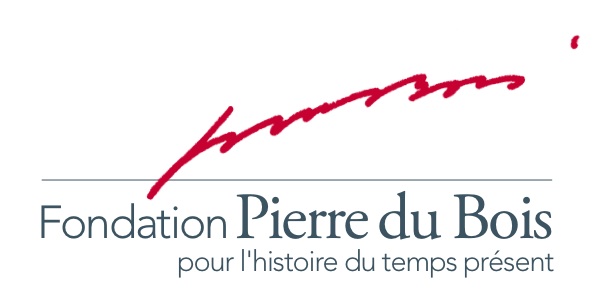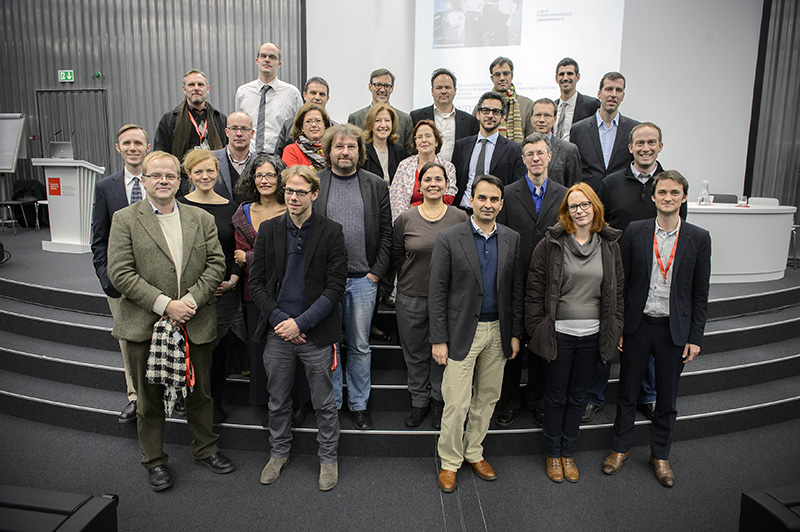International Organizations and the Politics of Development: Historical Perpectives
6 – 7 December 2013
Conveners:
Davide Rodogno (IHEID, International history)
and Sandrine Kott (UNIGE, History Department)
The Graduate Institute in partnership with the Fondation Pierre du Bois pour l’histoire du temps présent, in collaboration with the University of Geneva studied during this two-day conference the history of development politics and policies from the perspective of international organizations (inter-governmental, quasi-governmental, non-governmental, secular and faith-based, as well as philanthropic foundations). Throughout the period covered by our conference (1910s-1970s) bi-lateral (state-to-state) development programs coexisted with programs discussed and enforced through international organizations. Nonetheless, since the beginning of the twentieth century, development has been debated as an international issue and enforced internationally. The conference emphasized a number of connections – chronological and thematic – often overlooked by scholars and offered a reflection on the matrixes of development politics and policies: wars, post-war, imperial/colonial and post-colonial contexts.
The conference intended to show that international organizations are a very useful object of historical enquiry, one which helps us to unfold this complex entanglement of contexts that shaped international development ideas and projects. Conference participants looked at international organizations as sites where nation-states and non-governmental organizations, philanthropic foundations, as well as international experts hired directly by these organizations discussed multiple, and sometimes competing, visions of development. They examined these international organizations as laboratories where panoply of programs, projects and other kinds of actions were set up and eventually enforced. In so doing the conference explored development discourses, practices and power-related issues going beyond a state-centric perspective.
We invite you to see the programme and read the introduction by Prof. Davide Rodogno and Prof. Sandrine Kott.
You might also be interested to read an interview with Prof. Rodogno regarding the conference and view the photo gallery!
Conference Report
The topic of this year’s Annual Pierre du Bois Conference, organised by The Graduate Institute, Geneva, in partnership with the Pierre du Bois Foundation and in collaboration with the University of Geneva, revolved around international organisations and their politics and practices as regards development. During two days, these issues were analysed and discussed from a variety of historical perspectives. The conveners, Professor Davide Rodogno and Professor Sandrine Kott, invited the participants to explore past and existing continuities and ruptures in order to arrive at a longue durée observation that allows not only for a comprehensive overview of evolving programmes and discourses but also provides for a variety of history perspective: social, transnational, institutional, and so on.
On the first day, the main objective of the papers was to explore the emergence of development politics and practices on an international scale, starting with the “Roots of International Development from 1914 to 1938”. The first two papers discussed the contributions of American organisations and philanthropic foundations during and in the aftermath of the First World War. The other presentations showed that efforts of “development“ simultaneously emerged in other multilateral contexts. While the US American experience after the First World War and US based philanthropic foundations play an important role, development efforts emerged in other contexts during this period as well. This was shown in the examples of the International Labour Organisation’s (ILO) technical assistance practices in the Balkans and Latin America and the changing politics of emergency from imperial food relief to mandatory development in French Syria-Lebanon.
The second panel on “Colonial Legacies“ explored this point further: papers treated the trajectories from development practices and discourses of the British Empire to international organisations, from the French Empire to the European Economic Community and the late Portuguese colonial state and its conflictual relationship with the ILO concerning the legacy of forced labour.
The third panel concluded the day by showing how concepts and practices advanced “From Relief and Rehabilitation to Development during the 1940s”, with a case study from UNRRA’s (UN Relief and Rehabilitation Administration) vision of development in Italy, a history of the beginnings of the UN Technical Assistance scheme and a study of the World Bank’s development ideas from the 1950s to the 1970s.
The second day approached development through contrasting perspectives of periodisation: in the fourth panel on “Development as a `Postcolonial´ Project,” the first paper extrapolated from the signing of the Yaoundé Convention how decolonisation fostered discussions on development within international organisations. Case studies on the World Bank’s role in rural development and the Karia Dam project (between Zambia and Zimbabwe) brought out the practices of development very clearly.
The fifth panel dealt with “Development as a Cold War Issue,” and this periodical outline framed the first paper’s examination of the transformation from Western development in Eastern Europe to competing projects of development in the South. Subsequently, another paper studied development diplomacy through a case study on the World Bank’s involvement in the development of the Indus and Mekong Basins. The final paper explained the intertwined constellations of development, diplomacy and economic progress in Latin America as a testing ground for large development plans.
The sixth and last panel gave room to analyse “The Many Faces of Development” and highlighted the controversies and diversity of development with a case study on the rise and demise of a public private partnership between a non-governmental international organisation, CARE, and the Peace Corps in Colombia. A case study on nutrition development politics displayed a concise analysis of international organisation’s development activities from the League of Nations to the Food and Agricultural Organisation of the UN (FAO) in Brazil and the paper on the genealogy, purpose and enforcement of World Health Organisation (WHO) fellowship programs provided an insight into international organisations’ elaborated understanding of development practices.
With the conference’s prolific variety in scope, a recognisable set of corresponding results started to take shape. This resulted in an understanding that, firstly, development activities played a key role in a process of redefining the purpose of international organisations and reinforcing their efforts to legitimise themselves. And, secondly, an understanding that the centrality of technocracy, as the core value and ideological concept, is characteristic to all development agencies and actors, institutional as well as individual, and goes beyond national as well as political boundaries. Participants reiterated the importance of attending to actor networks, expert communities and transfers of technology.
In the concluding roundtable, the accent was placed on careful contextualisation of research results. It was stressed that the investigation of written sources of international organisations can provide a view of the institutional actors in the centre as well as on the national and local level, mainly because IOs are not directly addressing the people but their local and/or national governments. In order to get access to these voices we should turn to other sources. Conveners and panellists were all in agreement that IO archives should be complemented by other sources.
Marie Huber, Humboldt Universität Berlin




